#remembrance of things past
Text

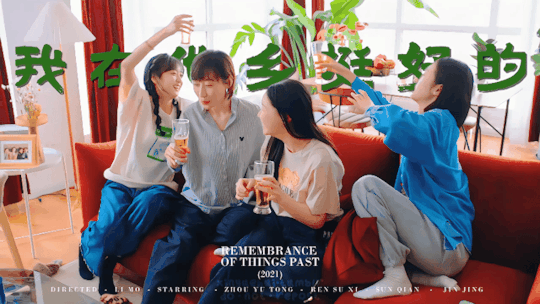




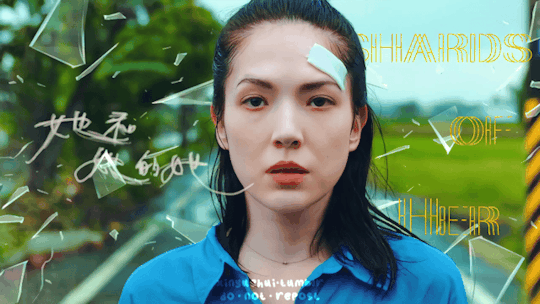

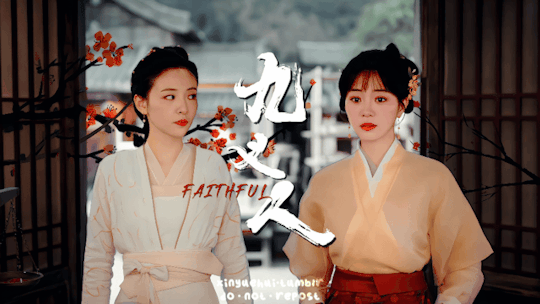
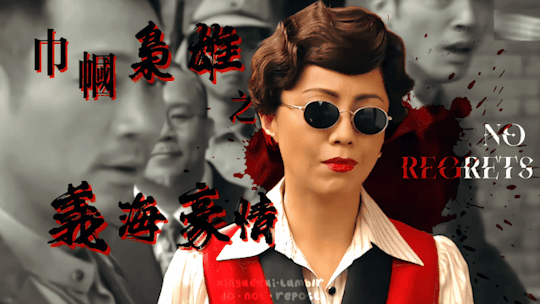
In celebration of International Women's Day, I want to share 10 of my favourite dramas with incredible women protagonists. They are loveable, courageous, ambitious, and sometimes annoying, dramatic, and stubborn. They are not perfect, they may remind you of a mother, daughter, wife, friend or perhaps yourself. Like someone who exists in our lives. ♡
Lady Tough (2021) 突如其来的假期
Remembrance of Things Past (2021) 我在他乡挺好的
Dear Diary (2021) 我的巴比伦恋人
Delicious Romance (2021) 爱很美味
Mad Doctor (2022) 村裡來了個暴走女外科
Twenty Your Life On 2 (2022) 二十不惑 2
Shards of Her (2022) 她和她的她
Song of Life (2022) 三悦有了新工作
Faithful (2023) 九义人
Rosy Business 2: No Regrets (2010) 巾幗梟雄之義海豪情
#cdramasource#dailyasiandramas#dramasource#asiandramasource#cdramanet#cdramaedit#iwd#international womens day#international women's day#xxj iwd collection#*4#lady tough#remembrance of things past#dear diary#delicious romance#mad doctor#twenty your life on#shards of her#song of life#faithful#rosy business#no regrets#chinese drama#cdrama#cdramagifs#theres so many tags here that i think its not even gonna appear 😂#i had the idea to make this from an ask i got last year asking me what my fav dramas are#in which i responded something along the lines of how my faves have little to zero popularity on tumblr. so here it is!!#i can also assure you that these are not pseudo female protagonist dramas where romance is sole personality of them
43 notes
·
View notes
Text

Marcel Proust, In Search of Lost Time (trans. C. K. Scott Moncrieff)
26 notes
·
View notes
Text





@userdramas event 12: loss [insp.]
"My dearest friends, forgive me for not being able to say goodbye in person. There may be some difficult moments in everyone's long path of life, but please have faith that the longest night will give way to dawn and the longest road will have an end."
REMEMBRANCE OF THINGS PAST 【我在他乡挺好的】 (2021)
#我在他乡挺好的#remembrance of things past#userdramas#asiandramanet#cdramasource#asiandramasource#dramasource#dailyasiandramas#cdrama#cdramaedit#asiandramaedit#mine*#mine*gif#god the gif quality is awful#i could not find a higher quality download of this drama :((#anyways it also came as a surprise to me that my event set this month is NOT word of honor
56 notes
·
View notes
Text
"Beijing is too big. It makes us look so... so insignificant."
#remembrance of things past#我在他乡挺好的#cdrama#zhou yutong#character: qiao xi chen#screenwriter: guo shuang#favourite moments#rewatch#cdrama scenes#video#*
12 notes
·
View notes
Text
'this term of great art, which seems to me to be necessary to qualify Proust.' (Robert-Ernst Curtius)
Marcel Proust: "I became aware of the tangible reality of Wagner's work again when I revisited these insistent and fleeting themes that visit an act, only to depart and return, sometimes distant, drowsy, almost detached, yet at other times, while remaining vague, so urgent and so close, so internal, so organic, so visceral that it seems less a reprise of a motif than of a neuralgia." (French text)
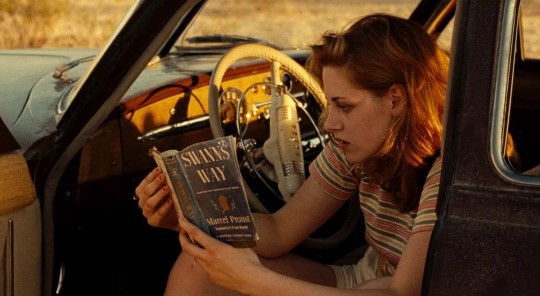
Photo: Kristen Stewart reads Marcel Proust
Robert-Ernst Curtius: "What did we experience at our first encounter with Proust's books? The sudden surprise of touching something unknown; of feeling a new substance whose structure eluded us. We felt disoriented and compelled to engage in a mode of expression for which none of the habits of our mind were prepared. Strange encounter. Initially bewildered, then intrigued, and finally captivated, we soon found ourselves drawn in by a mysterious allure. Barely having entered this unexplored territory, we were charmed, then conquered, and something of our most intimate life was changed. Like Ulysses' companions in the land of the Lotus-eaters, we had tasted a fruit that made us forget the past of our mind and removed the desire to return to our former nourishment. Intoxicated by our discovery, we couldn't distinguish whether it was a new form of art or a new plan of life that was presenting itself to us. But upon regaining our composure, retracing the path through analysis, we recognized this very impossibility of distinguishing between aesthetic emotion and the upheaval of our entire being as the infallible sign of the revelation of a great work of art.
I would like to give full significance to this term of great art, which seems to me to be necessary to qualify Proust. Certainly, there is no lack of fine, engaging, and powerful works in contemporary production. But do almost all of them not seem to have their starting point in transmitted literary forms—either continuing them or taking them in the opposite direction, which is just another way of depending on them? But alongside this production grafted onto earlier literature, the steady growth of which would be sufficient to attest to its somewhat secondary quality, there are few works that arise as if outside the literary concerns of the time; they do not seem called upon by the "moment" or motivated by an artistic movement; they differ profoundly from usual literature but without any sense of a desire to differ. These works, which do not depend so much on literature as literature will not depend on them, born from the original effort of a powerful mind focused on life itself, are the ones I was thinking of when using the term great art.
In Marcel Proust's work, the creative power presents a spectacle all the more admirable in that it has been exercised upon the richest literary and intellectual culture, which, in a less powerful mind, could have posed an obstacle to such a fresh realization by either paralyzing it or leading it astray into delightful yet bookish alexandrines. Proust's art, instead of being hindered by the treasures of his literary memory, manages instead to highlight them or, furthermore, to render them anew to us. He knows how to blend spontaneous life with the entire inheritance of the past. In handling it, he maintains direct and immediate contact with the elusively fleeting material from which our life is woven. Proust presents himself to it with a sensitivity that seems untouched by any prior contact—otherwise, how would it succeed in capturing nuances of reality that had previously eluded us? The slightest layer of transmitted experience or habit that would have intervened between them and the receiving apparatus would have acted as a barrier, preventing them from being inscribed there. But this sensitivity is accompanied by a mind nourished by the richest and most diverse tradition—and one that lives in familiarity with Ruskin as well as Saint-Simon. It is from the encounter of two things that seem to exclude each other— the most freshly spontaneous sensitivity and the most culturally laden intelligence— (but which, in him, by penetrating each other, mutually lend support) that Proust's art derives its new and moving beauty.
In a more general sense, the profound originality of the great artist who has just passed away is revealed in this, that attitudes of the mind that we are accustomed to consider as distinct penetrate each other in him to the point of forming a homogeneous whole. Intelligence does not merely overlay emotion but becomes one with it. Feeling and analysis do not appear as two opposed terms between which a relationship can be established. Art will be life, and vice versa. Lastly, thought in Proust never gives the impression of being a foreign and external element. One can consider separately in his work psychology, poetry, science, observation, emotion. But it will always involve an artificial isolation that distorts the truth. All these elements that analysis attempts to separate form in him not a mixture, not even a fusion, but the blossoming of an identical, primordial, and indivisible experience. By pushing the analysis further, I believe one would be led to understand this profound unity that is perceived beneath the delightful complexity of his work as the externalization of the creative impulse from which it originates. His art arises from this unified and total vision that constitutes the life of the mind at its principle and in its fullness. In Proust, I can never dissociate beauty from truth. The profound and purifying emotion suggested by the evocation of the mysteries of life; the intimate contentment caused by highlighting the infinitely small aspects of our existence; the happiness felt in the revelation of its unsuspected richness; the introduction to a deeper inner life—these are the gifts we receive from Proust's art, but bathed in the same atmosphere and melted into a single harmony.
It is a new era in the history of the great French novel that begins with Proust. Solely to better delineate his originality and without aiming at a judgment at this moment, which is one of homage to a great deceased, one can nevertheless say that he surpasses Flaubert in intelligence as he surpasses Balzac in literary qualities and Stendhal in the understanding of life and beauty. Therefore, he must be regarded as the founder of a realm that he shares with no other.
To our intelligence as well as to our admiration, he imposes himself as a master among the greatest.
He is among the three or four names in contemporary French literature that are already or will be European names. Rooted in the most authentic French soil, he nevertheless far exceeds the boundaries that some seem eager to set for the French spirit. He has expanded the domain of the human soul; he has embellished all our lives. Allied with the great classical lineage of his homeland, he has nevertheless strayed from the confines of a too timid classicism. He has given himself free rein without conforming to a pre-established aesthetic. Here again, he has shown himself to be a creator. With the freedom permitted by mastery, he has annexed to the French tradition domains hitherto left fallow.
Emerging at a time when intellectual Germany was turning away from manifestations of the French spirit to focus more exclusively on its own heritage, he made us feel once again—speaking on behalf of a few, until others may come to know and offer their testimony—that today, as in the past, there are treasures common to the nations of our divided and troubled Europe."
ROBERT-ERNST CURTIUS
Tribute to Marcel Proust, La Nouvelle Revue Française, 1923
VIDEO:
'He who this love into my heart had breathed,
whose will had placed the Wälsung at my side,
true only to him, thy word did I defy.'
(German: 'Der diese Liebe mir in's Herz gehaucht,
dem Willen, der dem Wälsung mich gesellt,
ihm innig vertraut, trotzt' ich deinem Gebot.')
Brünnhilde: Gwyneth Jones
Wotan: Donald McIntyre
Die Walküre
The Ring of the Nibelung
(Der Ring des Nibelungen)
Bayreuth 1979, Patrice Chéreau / Pierre Boulez
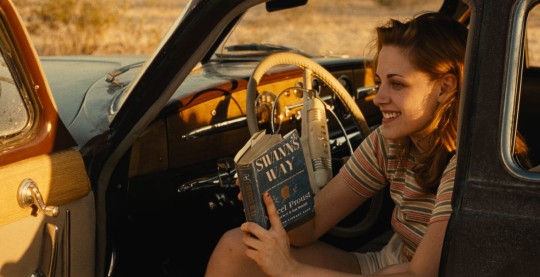
Photo: Kristen Stewart reads Marcel Proust
(On the Road, Walter Salles)
#of great art#art#artist#literature#music#marcel proust#kristen stewart#writer#heroine#musician#proust#opera#kstew#richard wagner#wagner#french literature#the ring#in search of lost time#book#critics#singer#novel#remembrance of things past#à la recherche du temps perdu#goddess#brunnhilde#curtius#pierre boulez#patrice chéreau#bayreuth
2 notes
·
View notes
Text



Matteo heading up to the 11,503 ft peak of San Gorgonio Mountain in southern California June of 2005. South Fork Trail is the beginning of a 9 mile trek to the summit, 18 mile round trip. This was a training day for the 8000 Meter Challenge. In May this year he will be back to run the same trail, part of his photographic journal road trip "remembrance of things past" project. Stay tuned for more information about his journey into the past!
#hiking#hiking trail#trail running#8000meterchallenge#remembrance of things past#training#journalinspiration#journaling#the past#memories#memorytrigger#nature#naturelovers#naturecore#mountains#san gorgonio mountain
4 notes
·
View notes
Text
And so it is with our own past. It is a labour in vain to attempt to recapture it: all the efforts of our intellect must prove futile. The past is hidden somewhere outside the realm, beyond the reach of intellect, in some material object… of which we have no inkling. And it depends on chance whether or not we come upon this object before we ourselves must die.
Marcel Proust (Remembrance of Things Past Volume 1: In Search of Lost Time, Swann’s Way)
#literature#writer#quote#books#books & libraries#quotes#tumblog#marcel proust#swann’s way#Remembrance of Things Past
7 notes
·
View notes
Text
the red dot is a cruel, cruel mistress
6 notes
·
View notes
Text







#remembrance of things past#cdrama#chinese drama#quotes#cdrama quotes#dramawisdom#zhou yutong#ren suxi#sun qian#bai yufan
15 notes
·
View notes
Text
will never get over that scene from the cdrama Remembrance of Things Past 我在他乡挺好的 where the two friends are both separately having awful days and after getting off the subway, momentarily crouch on the ground in weariness and defeat on opposite platforms, each unbeknownst to the other.

#such an honest portrait of the specific misery that comes with living in a city and its exceptional ability to wear you down#remembrance of things past#我在他乡挺好的#cdrama
17 notes
·
View notes
Text


In My Life (Remastered 2009)
youtube
#the beatles#in my life#remembrance of things past#people places things#Youtube#daniel tamm#andy gibb#helmut berger#gabriel byrne#iain glen#rick springfield#ed begley jr.#mike nesmith#sam waterston#doug mcclure#jay hammer#kiel martin#sean bean#john corbett
7 notes
·
View notes
Text

Marcel Proust, In Search of Lost Time (C. K. Scott Moncrieff)
#marcel proust#in search of lost time#remembrance of things past#quotes#words#longing#desire#yearning#love#literature#lit
9 notes
·
View notes
Text




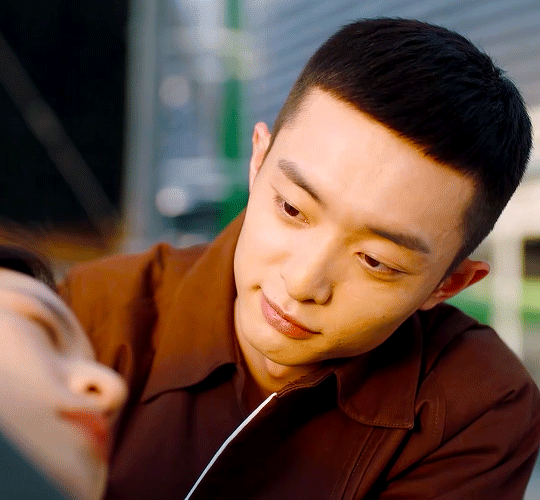
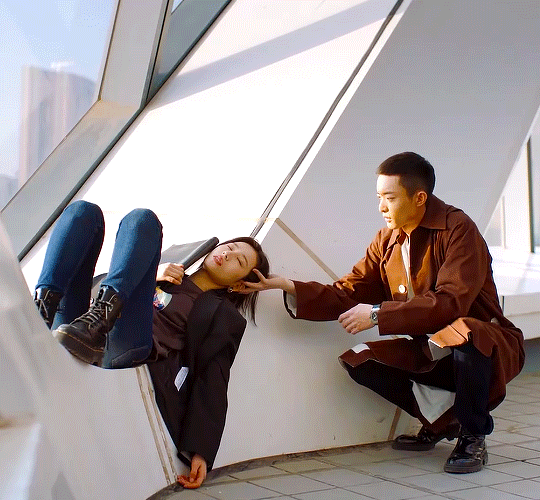
REMEMBRANCE OF THINGS PAST 【我在他乡挺好的】 (2021): EPISODE 08
#我在他乡挺好的#remembrance of things past#userdramas#asiandramanet#asiandramasource#cdramasource#dramasource#dailyasiandramas#cdrama#cdramaedit#asiandramaedit#useryd#roserayne#mine*gif#mine*#his fond little smile :')
58 notes
·
View notes
Text
Ji Nan Jia being such a mood.
#remembrance of things past#我在他乡挺好的#cdrama#ren su xi#ji nan jia#screenwriter: guo shuang#favourite moments#cdrama scenes#rewatch#video#*
5 notes
·
View notes
Text
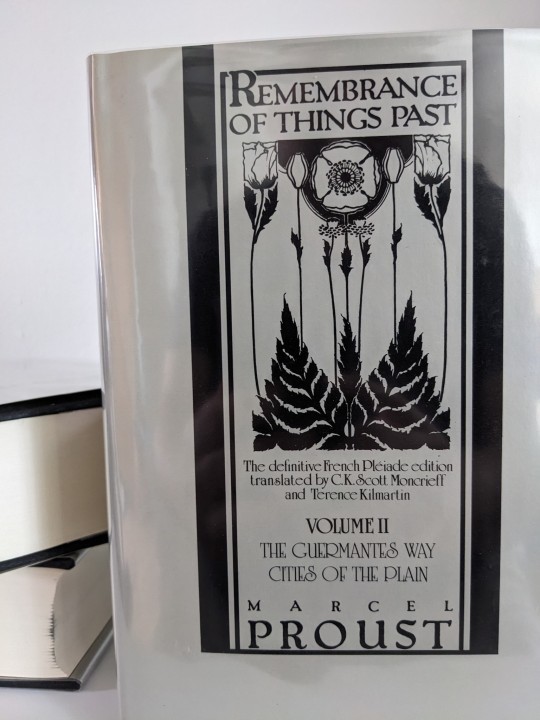
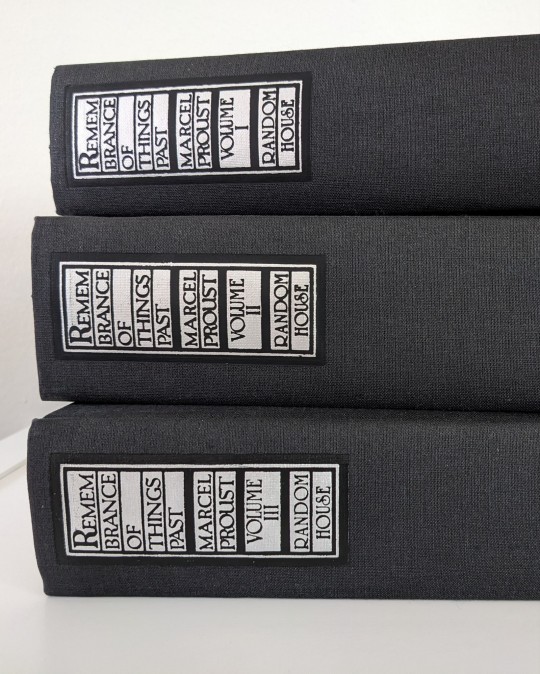
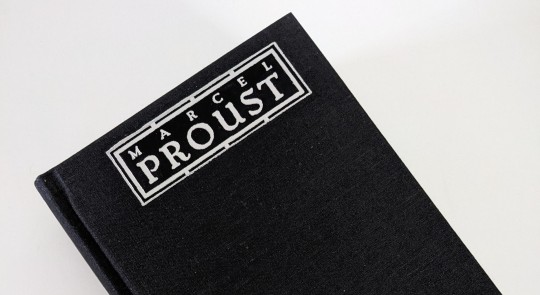

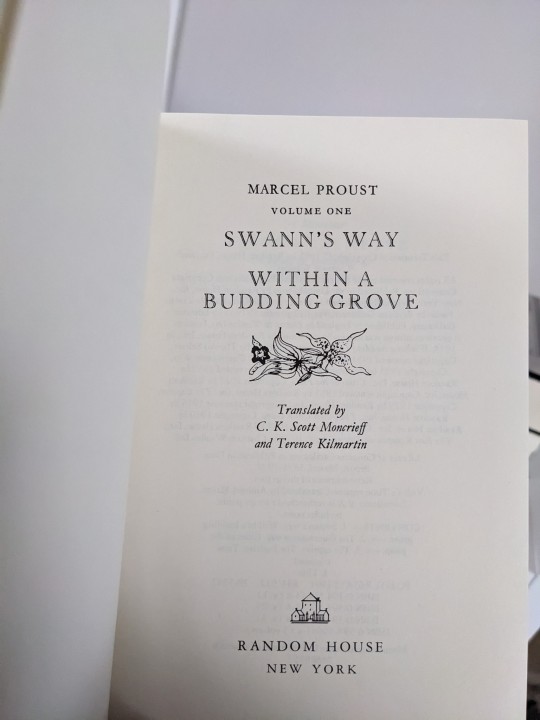
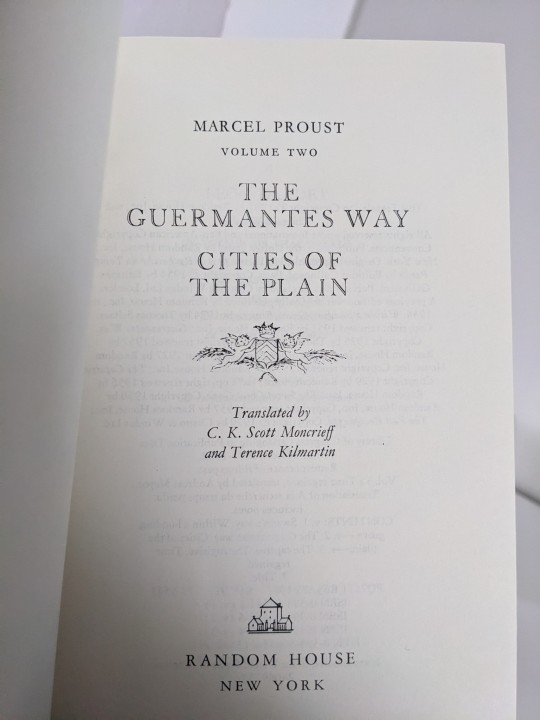

Remembrance Of Things Past, by Marcel Proust.
Three-volume set published by Random House in 1981. The Terence Kilmartin revision of the C. K. Scott Moncrieff translation, based on the French Pleiade edition. Time Regained is translated by Andreas Mayor, again with Kilmartin's revisions.
While the dust jackets are lovely (the illustration on each cover is repeated on and takes up the entirety of the back of each jacket; I've included a photo of volume two's illustration of flowers as that's my favorite, but all three covers are stellar) I believe this set truly shines when the book itself is revealed: bound in black cloth, with silver stamping to the spines for the title, and with "Marcel Proust" on the front cover of each volume.
Sets like this usually come without the dust jackets, at the cost of very major sunning to the beautiful black spines, which often results in a grey or brown instead of black. I'm very lucky to have found a set that not only includes the covers, but retains the original black cloth bindings.
Each volume opens with a half title page containing the titles of each book contained in said volume, as well as the first two lines of Shakespeare's sonnet 30, from which Moncrieff's English title is taken (a more literal translation of the original French, À la recherche du temps perdu, or In Search of Lost Time, has since been adopted). The full title pages of each volume contain the book titles in a gorgeous serif font, as well as a small illustration that changes with each volume.
I'll be reading these for the first time beginning this autumn; I'm looking forward to the journey!
5 notes
·
View notes
Text

#zhou yu tong#周雨彤#cdrama#polls#throwback: polls#tumblr polls#dailyasiandramas#asiandramasthrowback#asiandramasource#the journey#long for you#young blood#begin again#remembrance of things past#cambrian period#the coolest world#baek1nho#userstorge#samblr#userxlh#btw nothing but you is not in here because this is a throwback event#so it only makes sense to include dramas that have finished airing at least a few months ago
5 notes
·
View notes